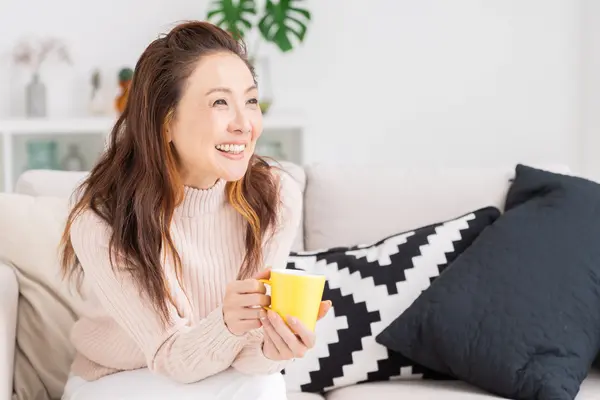Topics
To understand the basis and importance of nutrition and nutrients, click here.
We need macronutrients in large amounts compared to micronutrients. Hence the term 'macro'. There are three macronutrients: carbohydrates, proteins, and fats.
Carbohydrates
Why do we need carbohydrates?We need carbohydrates in our daily diet because they are our primary source of energy. Our body breaks down carbohydrates into glucose and glycogen. Glucose is used as immediate fuel, whereas glycogen is stored as an energy reserve in our bodies.Did you know carbohydrates are divided into 2 main groups?
- Simple carbohydrates
Simple carbohydrates are easily broken down as quick fuel for our bodies. They can be found in refined and processed sugars such as white sugar.
- Complex carbohydrates
Complex carbohydrates are found in whole, unprocessed foods such as starchy vegetables and whole grains.
Complex carbs are more beneficial. Our bodies take longer to break them down, thus stabilising our blood sugar levels. They are digested more slowly than refined carbohydrates so we will feel fuller for a longer time too, thus preventing us from over-eating.
Carbohydrates are often misunderstood. However, we need to understand that they are an important staple in our diet that provides energy for our daily activities.
The key is to focus on consuming more complex carbs and limiting or avoiding refined, processed, simple carbohydrates.
How much carbohydrates do I need in my daily diet?- Fact: 1 g of carbohydrate provides 4 calories
- Recommended Nutrient Intake (RNI) guideline for an average Malaysian adult: 45-65% of our calories per day should come from carbohydrates
- Example: For a 1,800 kcal of daily calories intake, roughly 810-1170 calories should come from carbs
Proteins
Why do we need proteins?Proteins derived from compounds called amino acids, which are essential in building and repairing our muscles. Proteins also make enzymes responsible for several chemical reactions. They can be found in all parts of your body: organs, hair, nails, ligaments, skin, and bones.
Healthy sources of protein include fish, poultry, lean meat., eggs, nuts, beans, and legumes.
How much proteins do I need in my daily diet?- Fact: 1 g of protein provides 4 calories
- Recommended Nutrient Intake (RNI) guideline for an average Malaysian adult: 1 gram of protein per kilogramme of body weight per day
- Example: Mr. Zakri weighs 75 kg, so he needs approximately 75 g of protein per day
Fats
Why do we need fats?Fats protect our organs and act as energy reserves. They are also essential for insulation and transportation of fat-soluble vitamins.
Fats can be found in oils, nuts, seeds, avocados, and dairy products.
There are 3 types of fat: unsaturated, saturated and trans fats.
- Unsaturated fats
Unsaturated fats are good for your health as they help stabilise your heart rhythm, improve blood cholesterol levels, and reduce inflammation. Unsaturated fats are found in avocados, vegetable oil, and nuts such as walnuts and almonds.
- Saturated fat
Saturated fat is primarily found in animal-based food but also in some plant-based foods such as palm oil and coconut oil. Processed food products such as pizza, desserts, hamburgers, pastries, and cookies are also high in saturated fat.
The intake of saturated fat should be limited and replaced with unsaturated fats to lower the level of low-density lipoprotein (LDL) or ‘bad’ cholesterol and increasing the level of high-density lipoprotein (HDL) or ‘good’ cholesterol. This helps to reduce the risk of heart disease.
- Trans fat
Trans fat or trans fatty acid (TFA) is particularly bad for your heart and the rest of your body as it has been linked to heart disease, diabetes, and stroke.
Trans fat damages the cells lining our blood vessels and reduce the ‘good’ cholesterol (HDL). This increases the risk of developing coronary heart disease by 23% for every additional 2% of daily calories from trans fat ingested.
Trans fat is produced due to hydrogenation during food processing. Trans fat are found in bakery products, pastries, snacks, pizza, potato chips, chocolate bars, breakfast cereals, fast food, fried chicken, among others. Local roti canai or any food items that use margarine are high in trans fat too.
Avoid trans fat at all cost before it is too late. Check food labels and avoid food products that contain “partially hydrogenated oil” on their ingredient list. “Partially hydrogenated oil” is trans fat.
- Fact: 1 g of protein provides 9 calories
- Recommended Nutrient Intake (RNI) guideline for an average Malaysian adult: 20-30% of our calories per day come from fats
- Example: For a 1,500 kcal of daily calories intake, roughly 34-50 g of dietary fat is required. Therefore, to maintain the intake within the recommended amount, minimise the usage of fat in food preparation
Should I count my macros?
Every person has different requirements and daily needs. It is entirely dependent on your age, gender, energy expenditure, and lifestyle. An athlete requires a different amount of macros than an average working adult.
Counting macros may be helpful. It allows us to be more mindful of what we consume and helps us build healthier eating patterns in the long run.
Make an appointment at Pantai Hospitals
A nutritious and balanced diet is crucial for us. Nourishing ourselves with the right balance of nutrients and reducing our trans-fats and sugar intake is key to keeping ourselves happy and healthy!
If you have questions about how to count your macros and ensure having adequate nutrition in your daily diet, contact the team of dietitians at your nearest Pantai Hospital to receive professional dietary advice to help kickstart your health journey.
To make an appointment for health screening, please contact the health screening centre at the Pantai Hospital nearest to you.
Pantai Hospitals have been accredited by the Malaysian Society for Quality in Health (MSQH) for its commitment to patient safety and service quality.
References
- What are Macronutrients. Available at https://www.mdanderson.org/publications/focused-on-health/what-are-macronutrients-.h15-1593780.html#:~:text=Carbohydrates%2C%20fat%20and%20protein%20are,Anderson%20Wellness%20Dietitian%20Lindsey%20Wohlford [Accessed on 5 August 2022]
- Recommended Nutrient Intakes for Malaysia. Available at https://nutrition.moh.gov.my/wp-content/uploads/2017/05/FA-Buku-RNI.pdf [Accessed on 5 August 2022]
- The trans fatty acids content of selected foods in Malaysia. Available at https://www.researchgate.net/publication/262109045_The_trans_fatty_acids_content_of_selected_foods_in_Malaysia [Accessed on 5 August 2022]













